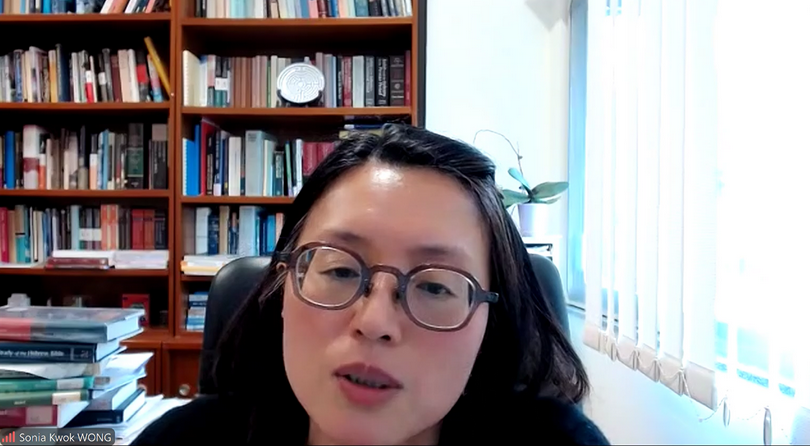On June 14, Professor Sonia Wong, assistant professor at the Divinity School of Chung Chi College, The Chinese University of Hong Kong, delivered a presentation titled "An Asian Reflection on Trauma Narratives in the Hebrew Bible" at the Asian Practical Theology International Conference 2025 as one of the keynote speakers.
Exploring how biblical trauma narratives might serve as pastoral resources for Asian contexts while emphasizing the need for critical evaluation, Prof. Wong first said that Asia is characterized by prolonged and multiple traumatic experiences.
She addressed the complexity of defining "Asian" in her presentation. Rather than adopting a purely geographical definition, she identified six characteristics that define Asia qualitatively: political diversity ranging from democratic to authoritarian regimes, economic diversity with extreme wealth gaps, religious diversity with significant interfaith tensions, ethnic diversity often involving conflict, high fatalities from natural disasters, and postcoloniality affecting all Asian countries except Japan and Thailand.
Based on Judith Herman's "Trauma and Recovery" and DSM-5 (Diagnostic and Statistical Manual of Mental Disorders, 5th edition) criteria, she explained that traumatic events involve threats to life or bodily integrity, confronting individuals with extremities of helplessness and terror. According to DSM-5, traumatic events include death, serious injury, and sexual violation, with approximately 10% of trauma survivors developing Post-Traumatic Stress Disorder (PTSD).
Prof. Wong then identified two types of trauma narratives. Peritraumatic narratives are written during or shortly after traumatic events and can help prevent and heal PTSD, while cultural trauma narratives are written generations later and reflect how trauma passes between generations. Both types exist in the Hebrew Bible, but she focused on peritraumatic narratives because of their healing potential.
As her first example, Prof. Wong analyzed Lamentations 2 as a peritraumatic narrative written during Jerusalem's fall. She described this 22-verse acrostic poem as reflecting survivors' sensory memories and emotional reactions. Divided into four sections, the text moves from emotionally numb third-person reporting to emotionally charged first-person engagement, then addresses "Daughter Jerusalem" before culminating in imperatives for survivors to express grief and anger against God.
Consequently, the passage functions as biblical trauma therapy by providing an emotional outlet, affirming survivors' feelings, and encouraging uninhibited expression toward God, she added. The text demonstrates that expressing anger to God, even against Him, remains acceptable within biblical tradition.
However, she cautioned that not all trauma narratives serve as appropriate resources. The professor examined Ezekiel 16 and 23 as problematic examples, noting how their sexual metaphors depict divine violence against adulterous wives (Jerusalem and Samaria) through gender-based violence including exposure, rape, and humiliation. She argued that metaphors perpetuate harmful ideologies rather than merely functioning as literary devices, thus making these texts potentially traumatizing rather than healing.
Moreover, the choice of sexual metaphor represents conscious avoidance of direct trauma description due to emotional unbearability. Paradoxically, this displacement creates new trauma for readers, particularly women who may identify with the violated figures.
Furthermore, Prof. Wong addressed the theological implications of using trauma narratives pastorally. She emphasized that biblical texts should not be treated as panaceas for trauma survivors. Instead, trauma narratives require critical evaluation through trauma theory to assess their effectiveness and theological soundness. She also warned that collective narratives can become ideological tools, leading to repression of trauma-related affects.
The presentation concluded with Prof. Wong emphasizing the increasing demand for pastoral assistance in processing traumatic experiences within Asian contexts. Given Asia's ongoing social conflicts, gender-based violence, postcolonial concerns, and natural disasters, faith communities require carefully evaluated biblical resources.
Therefore, Prof. Wong argued that passages like Lamentations 2 or Ezekiel 37 may serve as valuable resources for uplifting despairing individuals, whereas texts like Ezekiel 16 and 23 risk further traumatizing survivors. She called for critical scrutiny using contemporary trauma theories to distinguish therapeutically helpful from potentially harmful texts.












